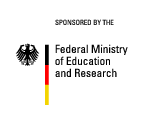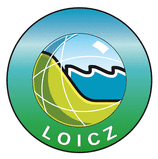下一批ZEF初级研究者开始实地测量工作
2011年5月中旬,Huynh Thi Phuong Linh, Panagiota Kotsila 和 Siwei Tan 抵达 Can Tho 进行他们为期10个月的实地测量工作。 所有的科学工作者都是来自于发展研究中心(ZEF)、伯恩和ZEF/WISDOM小组的初级研究者。Can Tho 大学对他们进行热情接待,并提供了一间办公室。高级科学家 Le Viet Dung博士, Bui Thi Nga 博士和Nguyen Duy Can 博士也都亲切热情的答应做实地考察工作的指导老师。
研究内容包含以下几个主题:
• 湄公河三角洲的水状况和工业化
• 水质和健康
• 当地水资源管理(区域和社会水平)
Siwei Tan目前研究湄公河三角洲区域工业群的工业废水处理。她将使用奥斯特罗姆制度分析和发展框架来分析湄公河三角洲不同工业生产区域的制度环境,比如工业区、工业园和工艺村。她的研究是为了理解这个与众多自然协同定位状况相对立的制度环境是如何形成工业废水处理的实施和结果的。她已经开始了她的第一阶段的研究,通过对三角洲13个省的访问调查,对工业化进程和工业废水处理情况进行概括。在她的第二个研究阶段,她将把重点放在案例分析和与更多利益相关者协作,以便更多更深入的理解实践和操作规则。
Panagiota Kotsila 通过调查由水传播的疾病来研究Can Tho市水质与健康之间的多方面关系。区域内特定的水文和复杂的处所引起了与水有关的健康风险,形成一个特定的水疾病传播历史和理解的背景,为社会和环境政策的制定和实施提供参考。
Research will focus on the ways people’s awareness around disease is formed and the potential this has on behavioral choices and ultimately exposure to disease threats. The first step of research has been to look into the general institutional setting of the Health Care system in the region and verify the relevance and importance of examining and controlling waterborne disease in the project region. A first round of interviews with health experts, health staff and patients as well as representatives of state agencies provided relevant background information for the upcoming selection of case study commune(s) within the Province. Qualitative social research methods are being applied in order to generate results on public perceptions and understandings as well as on existing strategies and potential capabilities for, or constraints against, waterborne disease.
Huynh Thi Phuong Linh is working on the topic “Water management at the local level”. The research in overall aims at understanding the everyday water management practices at the very local level – commune level - in the Mekong delta, given the current context of local institutions and changes (eg. new policies, programmes). The water users, technical and management agencies and other relevant actors and the interface between them are put in the focus of the research. The fieldwork took off with semi-structured interviews and field visits in governmental offices at provincial level and districts of Can Tho City as well as neighboring provinces. Data (maps, documents and interview results) is collected for the overview of irrigation and hydraulics works condition and management in the area, which is taken as a starting point to investigate water resources management practices in rural Can Tho. The next step will be to select the research sites, where in-depth interviews, (participant) observation and group discussions will be implemented.





